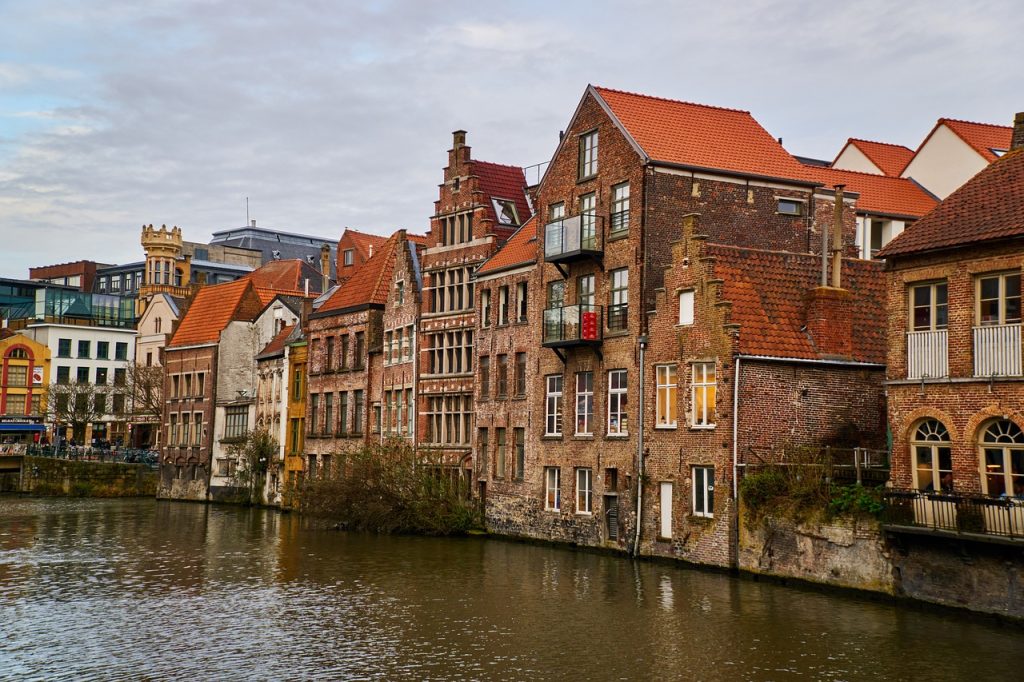One of the oldest, most independent cities in Belgium, Ghent, also boasts one of the longest traditions of citizen participation. Dating back over thirty years, it continues to expand its range of participatory processes. The municipality has recently commissioned research from the University of Ghent in order to improve further. One key takeaway: all forms of participation are valuable – there is no one-size-fits-all for citizen participation.
“It is the citizens who know what is best for them”, says Ghent’s Deputy Project Officer, Emma Tytgadt, quoting former Mayor, Daniel Termont. Socialist politician, Termont, was Mayor of Ghent from 2007 to 2018. During this time, he focused on expanding and advancing a range of citizen participation initiatives in the city. On the city’s dedicated Play a role in Policy website, one is faced with an eye-watering number of initiatives. “We do participation in many ways and it’s something we think is really important,” says Tytdgadt.
The Participation Platform
Designed and run by the city of Ghent, this platform provides citizens with information about both large and small-scale projects. It also provides them with the opportunity to give feedback. Larger projects typically originate with the municipality, but the Neighbourhood Budgets project, also part of this platform, takes a more grassroots approach. This participatory budget provides citizens with funds for the selection and development of whole projects, sometimes over a period of years.
The focus here is on smaller projects. Citizens can share initial ideas for such initiatives via the participation platform. Projects range from very modest initiatives like Trees with no Name, which simply involves getting citizens living in the city centre to vote on names for some of the oldest and largest trees growing in city parks. While others are much larger, with budgets of €250,000 to €300,000. For example, turning a large piece of natural bush and woodland, such as the Bloemekenswijkbos, into a more public-friendly park.
Once the municipality has checked that a project proposal is bona vide and does not clash with another proposal, it is assessed for ‘plus-project’ status. This means that the project will receive funding from local government. However, initiators of the project remain responsible for its oversight and development. Initially, projects were voted for online, by citizens. However, Emma explains that they have recently changed this approach. A citizen panel, organised via sortition, and representative of all members of the community, now convenes to discuss the short-listed projects.
Crowdfunding platform
Started in 2014, a crowdfunding platform provides citizens with a space to receive feedback and financial backing from fellow citizens. The platform is encouraged for those who have a good idea and a strong network, explains Emma. Research conducted by Dr. Bas Baccarne, from the University of Ghent, found that this crowdfunding platform contributes to social cohesion effects offline too. “It brings neighbourhoods together and strengthens ties in the local communities,” he explains.
So the online and offline environments complement and reinforce one another. This type of participation instrument tends to attract those with an entrepreneurial disposition who already have a strong network. The platform is helpful in extending the reach of existing networks and has an acceleration effect, says Dr. Baccarne. He also acknowledges that their research shows that online platforms like these tend to empower existing engagement elites. “The more instruments we add, digital and non-digital, the more they tend to empower the same people.”
Neighborhood Managers
These are fully paid positions within the city’s Policy Participation Service. Neighbourhood managers are plugged in to their communities and act as go-betweens for their neighbourhood and local government. There are twenty-five neighbourhoods in Ghent and there is one manager for each, explains Emma. These people work both on and offline in order to be tuned in to the issues, tensions and possible solutions found in their neighbourhoods.
Neighbourhood managers work with citizens on the ground to help develop ideas for participatory projects. These can then be channelled through the participation platform. For example, a manager might organise a debate on an issue of local interest in order to hear the needs and opinions of residents. They may also access informal platforms like Facebook or local equivalents in order to reach as many residents as possible. “They are tasked with bringing the needs of the citizens to the politicians,” explains Emma. “Networking for them is very important.”
But it doesn’t stop here…
Yet, Emma agrees that in spite of the availability of a broad range of instruments and projects, those participating online are still relatively few. Current research shows that those who engage heavily on these platforms are older people with higher levels of education. With the help of EU funding, the municipality decided to reach out to researchers at the University of Ghent, in the hope of gaining more insights into improving participation rates. Initial research by Dr Cato Waterloes, shows that young people, as a demographic, are poorly represented and typically feel unheard when it comes to citizen participation.
Dr Waterloes and fellow researchers are now trialling a participation app, specifically aimed at the young people of Ghent. The city of Barcelona is also developing a youth-focused app for greater participation. Look out for more information about this and related projects in a forthcoming article. “It’s a question of finding the right public for the right outlet,” says Dr Waterloes. Emma agrees, “Our approach in Ghent is more horizontal – we feel that all forms of participation are valuable. Each citizen needs to decide for themselves what is best for them.”
